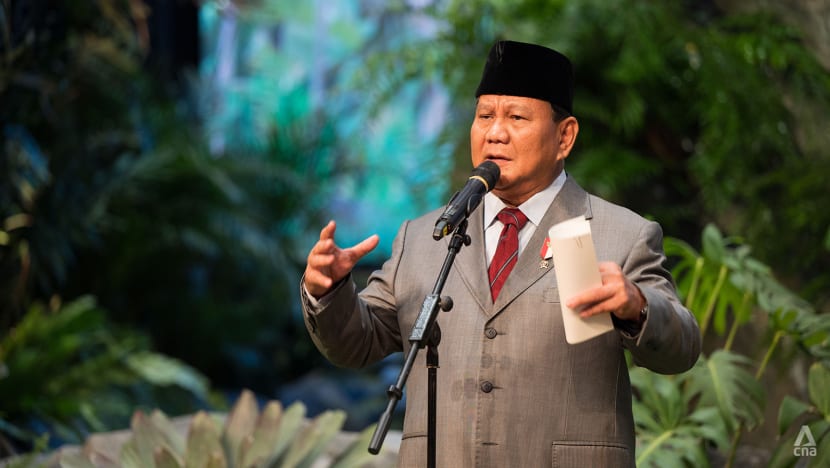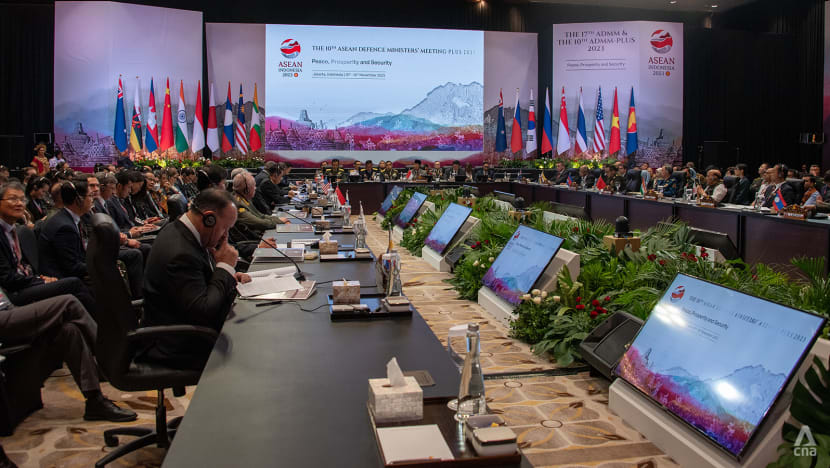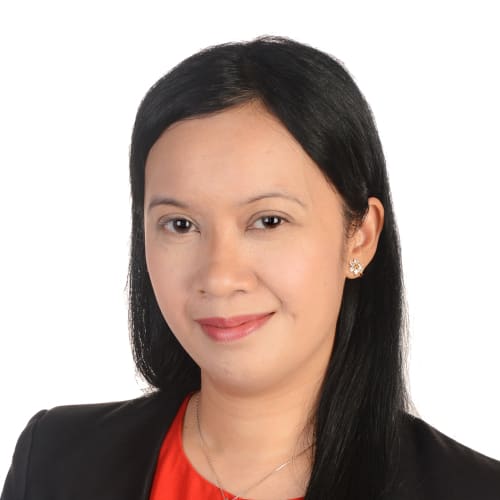Southeast Asia countries urge powerful nations to use their influence to stop war in Gaza: Indonesian defence minister
The ASEAN ministers also hope that the crisis in Myanmar and disputes in the South China Sea can be resolved soon.

Indonesian Defense Minister Prabowo Subianto giving a press statement after closing the 17th ADMM and the 10th ADMM Plus meetings in Jakarta, on Nov 16, 2023. (Photo: CNA/Danang Wisanggeni)

This audio is generated by an AI tool.
JAKARTA: Several countries in Southeast Asia - including Indonesia and Malaysia - have urged the Israel-Hamas war in Gaza to stop and for influential countries to use their power to protect civilians, said Indonesian Defence Minister Prabowo Subianto.
“We asked all countries that have influence to immediately use their influence to stop actions against innocent people, unarmed civilian groups who are non-combatants, women, children, and (to) protect all infrastructures for civilians.
“And they must not be the target of war. This is per international law. Humanitarian law,” said Mr Prabowo at a press conference on Thursday (Nov 16) on the second day of the 17th Asean Defence Ministers’ Meeting (ADMM) in Jakarta.
Defence ministers from the regional bloc - aside from Myanmar - met for the annual two-day meeting. They were joined by their eight dialogue partners Australia, China, India, Japan, New Zealand, Russia, South Korea and the United States on the second day.
Mr Prabowo - who chaired the meeting as Indonesia is this year’s rotating chair of ASEAN - said that several ministers expressed their concerns over the war in Gaza and encouraged them to do everything to stop the violence there immediately.
A chairman’s statement on the situation in the Middle East released to the public later in the day said there is a pressing need for constructive dialogue to commence without delay, mentioning the situation in Gaza.
“The ADMM exchanged views and expressed deep concern over the deteriorating situation in Gaza,” the statement read.
An ASEAN statement released on the first day of the meeting did not mention Gaza.
The chairman’s statement on Thursday further called for an “immediate, durable and sustained humanitarian truce” to stop the violence there.
“(We urge) both parties to respect the sanctity of life and property, emphasising that the protection of all civilians, including ASEAN nationals, must be prioritised in times of conflict, and all hostages must be released immediately and unconditionally,” read the statement.
It added: “The meeting further called upon the United Nations, especially the Security Council, to take a more active role in preventing the further escalation of the conflict and averting a wider humanitarian disaster.”
The statement also said the meeting supported the initiation of peace negotiations to achieve a two-state solution.
Previous ASEAN defence ministers’ meetings mostly also produced a chairman’s statement but were usually not on a particular topic.

CONTINUED CONFLICT IN MYANMAR, SOUTH CHINA SEA
The meeting in Jakarta was attended without ASEAN member Myanmar, which has seen ongoing violence since the military coup in February 2021 that ousted the government of Aung San Suu Kyi.
Myanmar is barred from the meeting due to the military government’s failure to comply with ASEAN’s five-point consensus (5PC) peace plan.
The 5PC was adopted during an ASEAN leaders emergency meeting in April 2021, which among others, called for an immediate cessation of violence in Myanmar.
However, barely any progress has been made ever since.
Despite Myanmar’s absence, Mr Prabowo said that the regional bloc continues to encourage the Myanmar military government to seek a non-violent solution.
“In principle, ASEAN adheres to the principle of not wanting to interfere in the domestic problems of other countries, but we will use our influence to push towards a peaceful resolution,” said Mr Prabowo.
He added that they also continued to discuss the South China Sea issue, where several ASEAN members have overlapping claims with China.
"Regarding the South China Sea, we continue to encourage efforts to create a code of conduct, a fixed procedure to avoid the possibility of misunderstandings and unexpected incidents.
“So we don't want there to be an increase in tension," said Mr Prabowo.
The group has been pushing for a code of conduct for years to resolve the disputes. Still, negotiations have stalled for various reasons, including the COVID-19 pandemic, which made in-person meetings difficult.
















